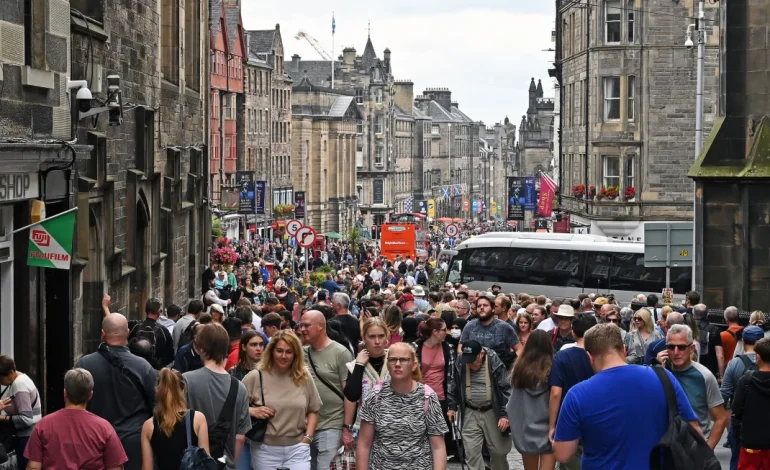Edinburgh has become the first city in the United Kingdom to approve a tourist tax, aiming to generate millions for local services and infrastructure, CNN reports.
The new levy, set to be implemented from mid-2026, will see visitors staying overnight in the Scottish capital charged a fee of 5% of their accommodation cost per night.
The charge will apply to various types of accommodation, including hotels, bed and breakfasts, hostels, self-catering apartments, and guest houses. The city council has capped the charge at a maximum of five consecutive nights, meaning visitors staying longer won’t be charged further after that point. Accommodation providers will be responsible for collecting the fee on behalf of the city authority.
Jane Meagher, head of the City of Edinburgh Council, emphasized that tourism, while beneficial, “puts strain on the city’s resources,” requiring funding to support sustainable development. The city welcomed nearly 5 million overnight visitors in 2023, who collectively spent £2.2 billion ($2.7 billion). The council estimates the new levy will generate between £45 and £50 million ($56-62 million) annually by 2028 or 2029.
Years in Making
Discussions about a tourist tax in Edinburgh have been ongoing since 2018. The initiative became viable when the Visitor Levy (Scotland) Act came into effect in July, allowing local authorities to impose such charges. According to the Act, revenue from the levy must be used to support local facilities and services used heavily by both business and leisure travelers.
Some councillors had initially advocated for a higher charge, hoping to use the funds to tackle the city’s affordable housing crisis, which disproportionately affects those working in the hospitality sector.
Consultation, Compromise
Prior to the vote, the council conducted a public consultation, gathering feedback from residents, businesses, and visitors. While just over half of local residents and businesses supported the 5% charge, the majority of visitors (62%) opposed the levy or believed it should be lower.
The initial proposal included a cap of seven nights for the charge, but this was reduced to five after concerns were raised by Visit Scotland and Edinburgh Festivals. They highlighted that performers and other festival workers frequently stay for several weeks during events.
Council Hails “Once in Lifetime Opportunity”
The council approved the plan last week, solidifying the final decision on Friday. Meagher described the move as “a once in a lifetime opportunity to invest tens of millions of pounds towards enhancing and sustaining the things that make our city such a great place to visit – and live in – all year round.”
Edinburgh joins a growing number of European cities that have introduced tourist taxes in recent years. The Welsh government is also planning similar legislation this year.
European Cities Lead Way
Venice, Italy, recently experimented with a temporary entrance fee for day-trippers and declared the program a success for raising significant revenue. Amsterdam, Netherlands, is thought to have the highest tourist tax in Europe, levying a 12.5% nightly fee on hotel rooms, camping sites, and holiday rentals. The city also charges a €14.50 ($15.20) per passenger fee to sea and river cruise operators.








